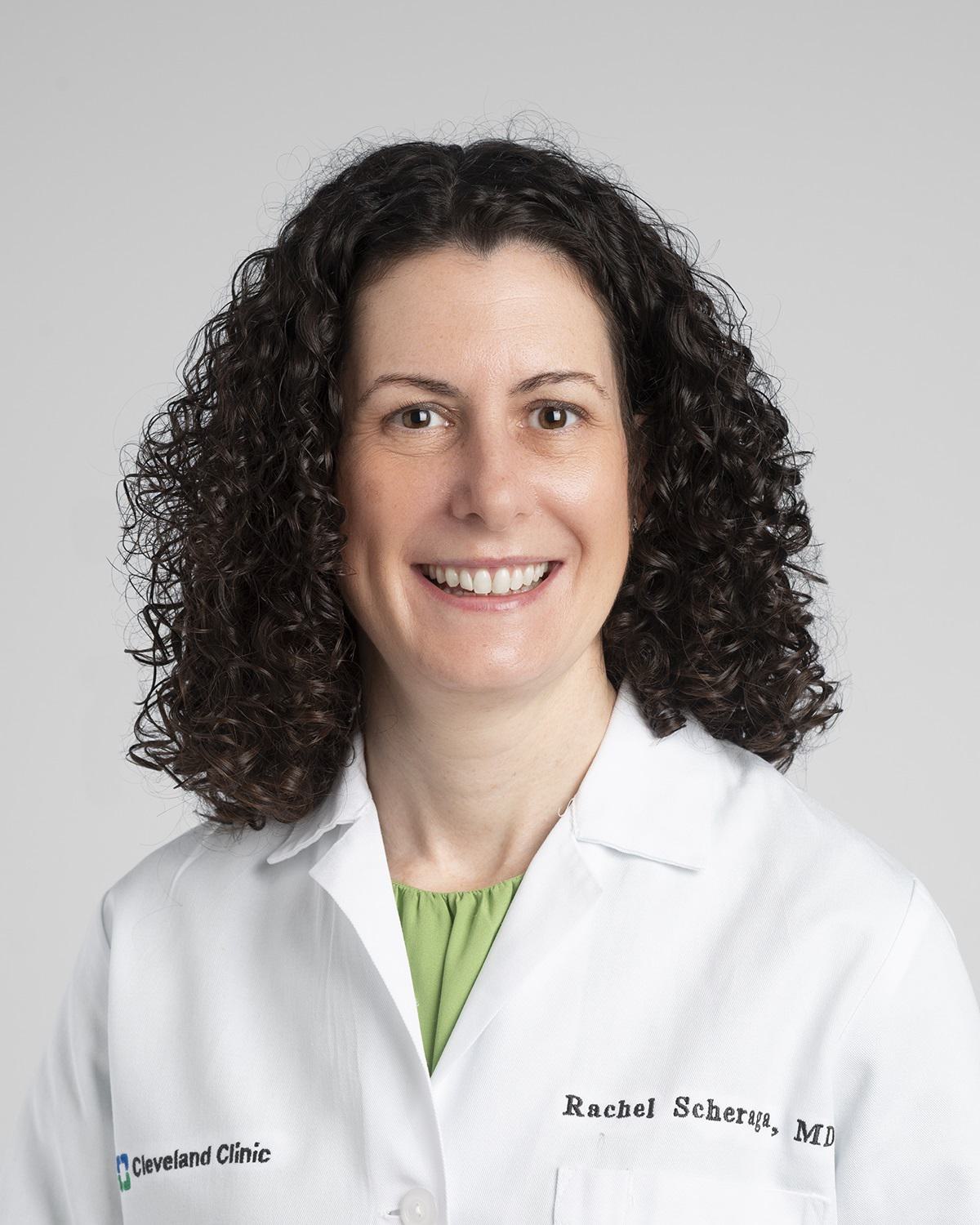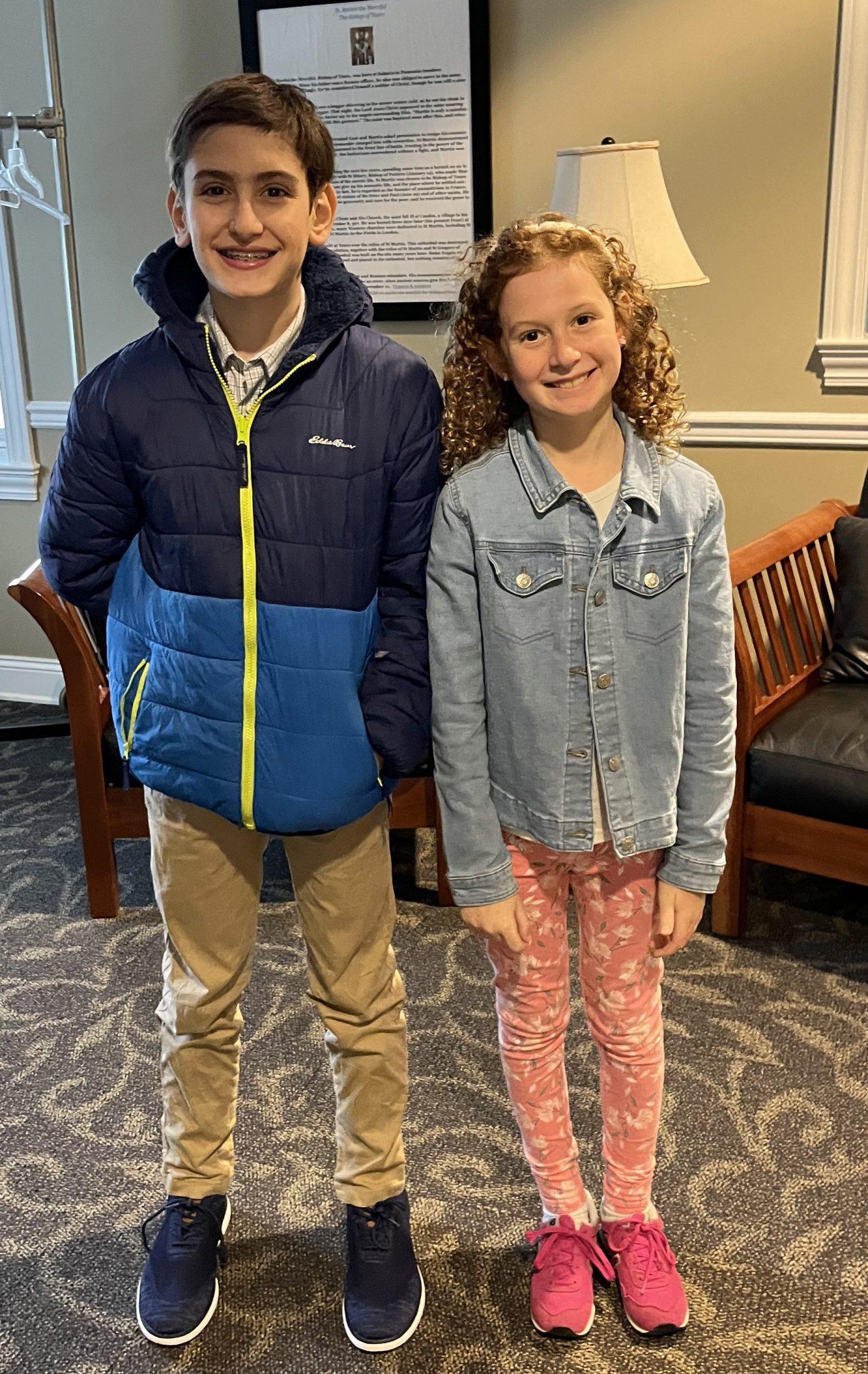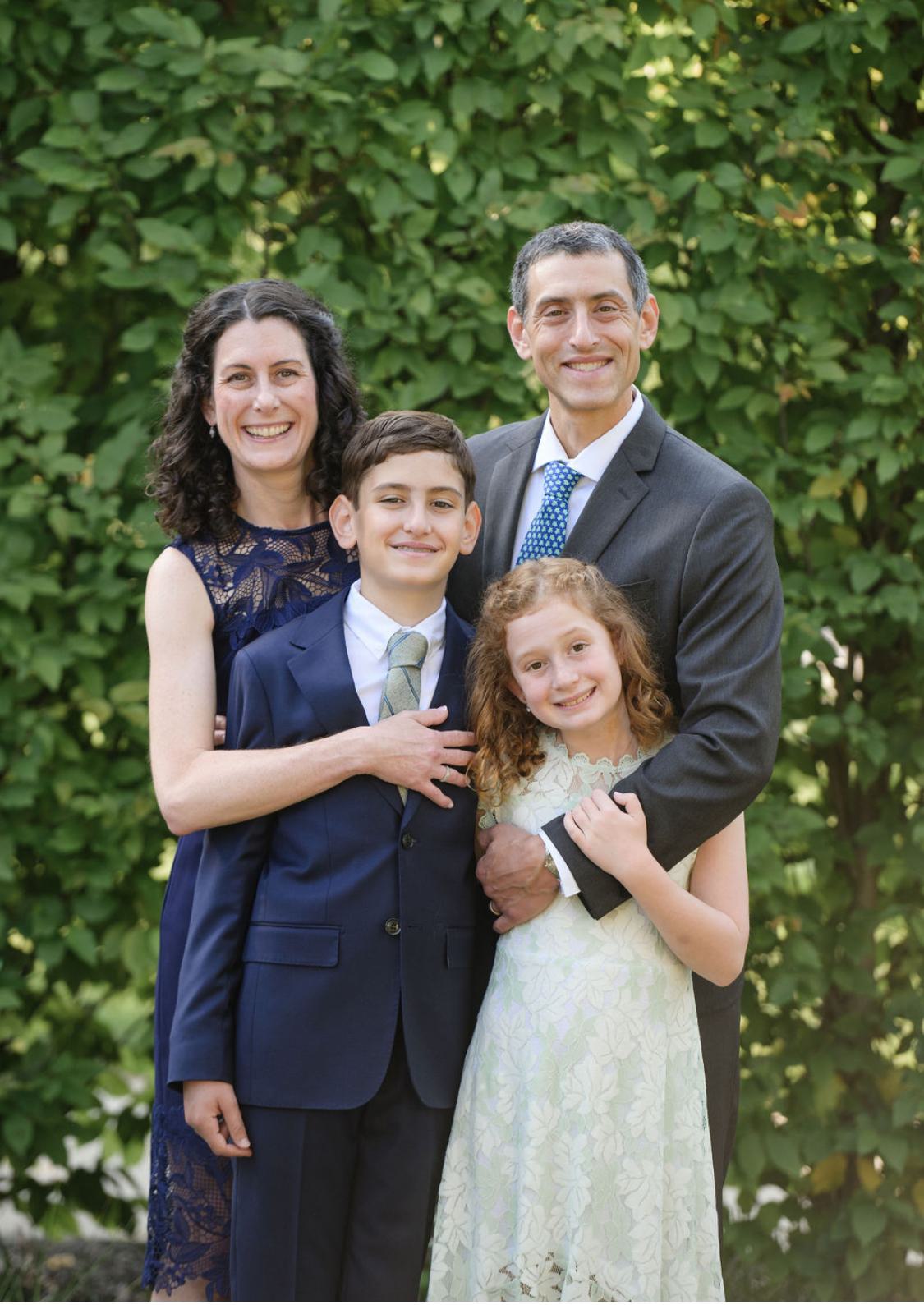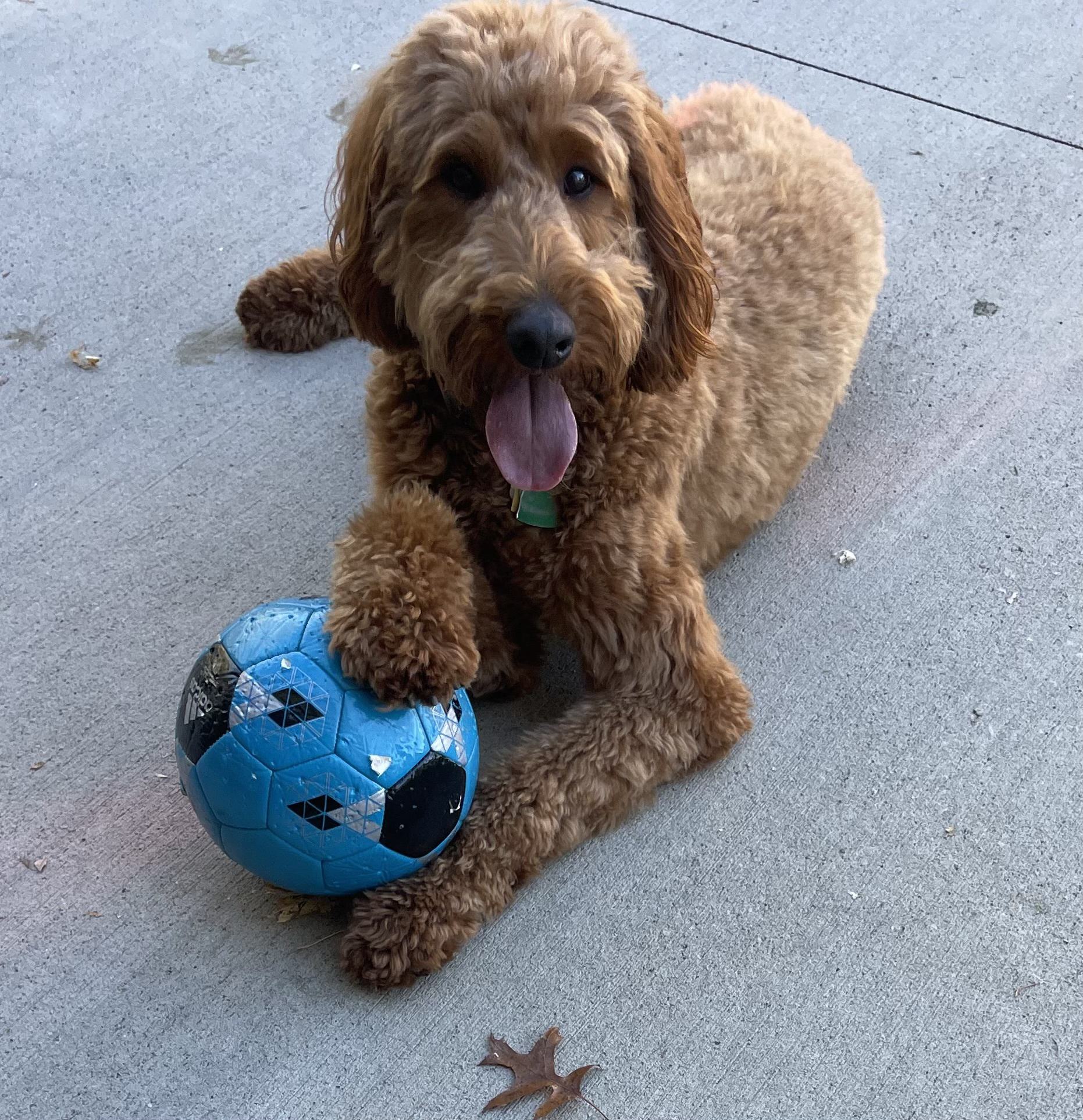Rachel Scheraga, MD, ATSF
Associate Professor of Medicine, Cleveland Clinic Lerner College of Medicine, Cleveland Clinic
Staff Physician, Department of Pulmonary and Critical Care, Integrated Hospital Care Institute
Associate Staff, Inflammation and Immunity, Lerner Research Institute

1. Three statements about you – two true, one false.
I played rugby in college.
I have two children with one entering high school in the fall.
I was born in Cleveland, Ohio.
2. Give us your ‘elevator pitch’ biography.
I loved scientific discovery growing up and did many research projects during my undergraduate studies as a Chemistry major. I worked in the summers at pharmaceutical companies working on drug discovery. However, I thought interacting with people and bedside clinical medicine would have more of an impact on patients. As I was learning about medical diseases, I found myself continuously asking more about the pathogenesis of disease and really looking into how I can solve patients’ medical problems beyond what was currently clinically approved for treatment. I then quickly realized that I could impact more patients with research. During my medical residency I was able to connect with other clinician scientists and pivoted my career aspirations to this path without ever looking back. I owe a lot of this guidance to my mentors and my family support that believed in me from the beginning.
My current work seeks to understand how the lung microenvironment affects immune function in response to infection and lung injury, repair, and fibrosis. I have really enjoyed paying it forward through mentoring the next generation and assisting with the research opportunities for our clinical and research fellows. ATS has connected me with many leaders in the field, and I am extremely appreciative of the impact it has had on my career.
3. What would you tell yourself as an Early Career Professional?
Don’t sweat the small stuff. Stay true to yourself no matter what happens in your career. Take in the moment and celebrate when you have wins as rejection is a big part of this career.
4. If you weren’t in medicine, and were in a different industry altogether, what would you be?
I would be a running coach mostly geared to teaching children to run. I would work to motivate young children to be the best version of themselves.
5. What is your favorite way to spend a day off?

I enjoy spending time with my family. We like to go for hikes with our 2-year-old goldendoodle and see shows at Playhouse Square in Cleveland. I am also trying to learn piano with my children and practicing duets with them is a great way to unwind.


6. What areas of medicine are you most excited to see develop?
I am most excited about drug discovery and repurposing drugs for new indications. I think with AI we can become more efficient with our discoveries moving forward and work better as a team.
7. What is one advancement in your field you’d like to see in your career?
I am hoping for my targeted therapies for the critically ill. These patients are complicated, and it has been difficult to design therapies, but I think with some newer studies on the horizon we might be close to being able to provide treatments.
8. Which statement (in question #1) was false?
I was born in Cleveland, Ohio
Dr. Scheraga currently serves on the ATS International Conference Committee. She also was the ATS Assembly on Allergy, Immunology and Inflammation program committee chair 2024-2025.